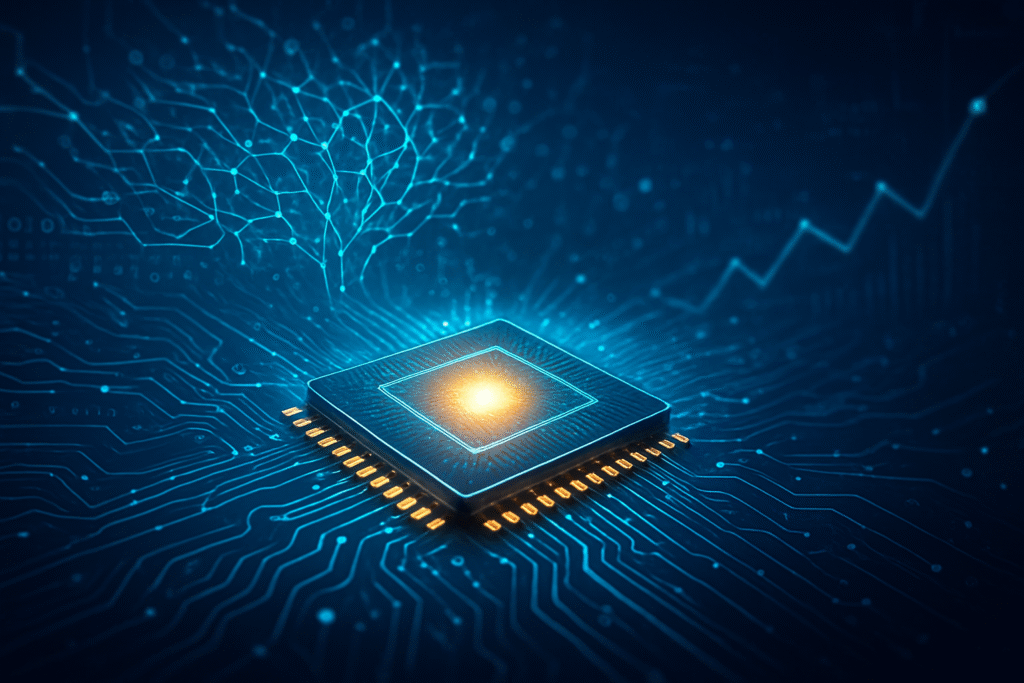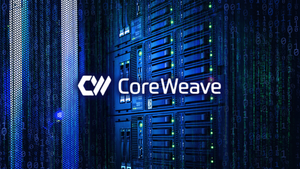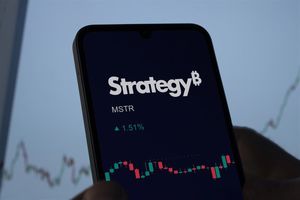
In the rapidly evolving landscape of the semiconductor market, Qnity Electronics (NYSE: Q), a newly independent entity, has swiftly captured the attention of investors and industry analysts alike. Following its spin-off from DuPont (NYSE: DD) on November 1, 2025, and subsequent listing on the New York Stock Exchange (NYSE) on November 3, 2025, Qnity has been a subject of intense scrutiny, particularly in light of an unexplained nearly 5% share price uptick on November 11, 2025. This sudden surge, occurring without any immediate company announcement, has ignited discussions about the company's true valuation and the underlying market sentiments driving the semiconductor sector's AI-fueled boom.
Qnity's debut on the NYSE was marked by its immediate inclusion in the prestigious S&P 500 index, signaling its perceived strategic importance within the industry. The company opened trading just under $100 per share, closing its first day at $97, achieving an initial valuation of approximately $20 billion. As of November 10, 2025, its market capitalization stood at $40.46 billion. The unexplained share price movement on November 11, 2025, suggests a renewed wave of investor optimism, potentially hinting at a market re-evaluation of Qnity's position as a pure-play technology leader in critical semiconductor materials.
Unpacking Qnity's Valuation and Market Dynamics Amidst an Unexplained Uptick
Qnity Electronics' valuation in the semiconductor market is a complex interplay of its strong financial performance, strategic positioning, and market sentiment. The company's core business revolves around providing essential materials for semiconductor chip manufacturing and advanced electronic materials, with a significant two-thirds of its revenue directly tied to the burgeoning semiconductor and artificial intelligence (AI) sectors. Its product portfolio, including materials for lithography, chemical mechanical planarization (CMP) pads, Kapton polyimide films, and thermal management solutions, is critical for the development of advanced nodes and high-performance AI chips.
Financially, Qnity has demonstrated robust performance. For the third quarter of 2025, the company reported net sales of $1.3 billion, an impressive 11% year-over-year increase, largely driven by strong AI-related demand in advanced nodes, advanced packaging, and thermal management solutions. Adjusted pro forma operating EBITDA for Q3 2025 saw a 6% increase, reaching approximately $370 million, with an EBITDA margin of around 29%. Based on these strong results, Qnity raised its full-year 2025 net sales guidance to $4.7 billion, up from a previous estimate of $4.6 billion, and reaffirmed its adjusted pro forma operating EBITDA target of $1.4 billion.
Despite these positive financial indicators, Qnity's stock experienced a 6.34% decline on November 6, 2025, closing at $99.65, immediately following its Q3 earnings announcement. This dip, despite the strong growth metrics, could be attributed to broader semiconductor industry concerns or initial post-spin-off market adjustments. However, the subsequent nearly 5% uptick on November 11, 2025, without any specific catalyst, has drawn significant attention. Market analysts speculate this could be a correction as investors reassess Qnity's true value, especially given its current price-to-earnings (P/E) ratio of 25.5x, which is notably below the peer average of 46.7x and the broader US Semiconductor industry average of 35.4x. This discrepancy suggests Qnity might be undervalued relative to its strong earnings growth of 32.3% over the last year, significantly outperforming the sector's average of 3.3%.
Initial reactions from market analysts have been largely positive, with Qnity holding a consensus "Buy" rating from Wall Street analysts, and some issuing "Strong Buy" or "Outperform" ratings. The average twelve-month price target is set at $110.00, suggesting a potential upside of approximately 9.98% from recent trading prices. This positive sentiment is fueled by Qnity's pure-play status in electronic chemicals and its substantial exposure to the rapidly expanding AI and advanced chip markets.
Competitive Ripples: Qnity's Impact on the Semiconductor Ecosystem
Qnity Electronics' strong market entry and strategic focus on AI, high-performance computing, and advanced packaging are sending significant ripples across the semiconductor industry, impacting established companies, tech giants, and emerging startups alike. Its position as a critical materials provider means its movements have a foundational effect on the entire value chain.
Companies offering complementary materials, precision manufacturing equipment, and advanced testing solutions stand to benefit from Qnity's success. The robust demand for high-performance materials and integration expertise, which Qnity exemplifies, signals a healthy and expanding market for specialized material and equipment providers. Firms like Entegris, Inc. (NASDAQ: ENTG), MKS Instruments, Inc. (NASDAQ: MKSI), and Teradyne, Inc. (NASDAQ: TER) could see increased demand as the entire ecosystem supporting advanced chip manufacturing thrives. Similarly, companies specializing in advanced packaging and thermal management solutions, crucial for high-density AI chips, are likely to experience a boost in market opportunities and valuations. Foundries and wafer fabricators, such as Taiwan Semiconductor Manufacturing Company (NYSE: TSM), Samsung Foundry, and Intel Foundry Services (NASDAQ: INTC), who are Qnity's primary customers, also benefit from Qnity's growth, indicating healthy utilization rates and technology transitions.
Conversely, less differentiated material providers or smaller, less innovative suppliers may face intensified competition. Qnity's focus on "leading-edge innovation" and its "high-value product portfolio" could pressure these players, making it difficult to compete on technology and scale. Direct competitors offering similar materials for chip fabrication might also face market share erosion due to Qnity's broad portfolio and "end-to-end horizontal product integration."
For tech giants like NVIDIA Corporation (NASDAQ: NVDA), Alphabet Inc. (NASDAQ: GOOGL), Microsoft Corporation (NASDAQ: MSFT), and Amazon.com, Inc. (NASDAQ: AMZN), Qnity represents a critical and robust supply chain partner. As major developers and consumers of AI and high-performance computing chips, these giants rely heavily on the advanced materials and solutions Qnity provides. Qnity's strong performance signifies a healthy and innovative supply chain, potentially accelerating their own product roadmaps in AI and data centers. While increased market dominance by Qnity could eventually lead to pricing power, for now, its growth primarily strengthens the ecosystem that benefits its customers. Startups in niche areas of semiconductor materials or advanced manufacturing processes could find lucrative opportunities or become attractive acquisition targets for Qnity, given its strong balance sheet and growth ambitions. However, those directly competing with Qnity's core offerings might face significant challenges due to its scale and established customer relationships.
Broader Implications: Qnity in the AI and Semiconductor Tapestry
Qnity Electronics' situation, particularly its strong performance driven by AI-focused semiconductor materials, is a microcosm of the broader AI and semiconductor landscape's transformative journey. It underscores several critical trends and highlights both immense opportunities and potential concerns that resonate across the tech industry.
The company's success aligns perfectly with the current market enthusiasm for companies foundational to the AI revolution. The semiconductor sector is experiencing a "supercycle" of expansion, with demand for AI infrastructure, next-gen chip design, and data center expansion fueling unprecedented growth. Qnity's specialization in AI-driven semiconductor materials places it at the cutting edge of innovation, contributing to advanced materials discovery, chip design optimization, and manufacturing efficiency through AI and quantum computing. Its role in advanced packaging and High-Bandwidth Memory (HBM) customization is crucial for high-performance AI workloads.
Wider impacts on the tech industry include an accelerated pace of innovation across various sectors, as specialized AI-driven semiconductor materials enable faster development cycles and more powerful AI capabilities. Qnity's position also feeds into the "AI infrastructure arms race," where nations and major tech companies are heavily investing in AI capabilities, making companies like Qnity critical enablers. Furthermore, AI is reshaping supply chains, optimizing management, and fostering more resilient networks, with Qnity being a crucial link in these evolving, AI-optimized systems.
However, this rapid advancement also brings potential concerns. The current AI boom, while promising, has led to speculation of an economic bubble, with many generative AI projects still unprofitable despite massive corporate investments. Qnity, while benefiting from this optimism, is also exposed to these risks. Ethical considerations, job displacement, and regulatory concerns surrounding AI are prominent, echoing debates around previous technological shifts. The "AI infrastructure arms race" could also lead to further consolidation of power among tech giants.
Comparing the current AI boom to previous milestones, experts note that while AI is a continuation of general-purpose technologies like steam engines and electricity, its adoption rate is faster than that of the personal computer and the internet. The unprecedented speed and scope of AI's integration across industries suggest a "transformative rupture" rather than an incremental advance, making historical governance tools potentially obsolete.
The Road Ahead: Future Developments and Challenges for Qnity and Semiconductors
The future for Qnity Electronics and the broader semiconductor market is characterized by continued rapid innovation, driven by the insatiable demands of artificial intelligence, high-performance computing, and enhanced connectivity. Qnity, as a pure-play technology provider, is strategically positioned to capitalize on these trends, but also faces significant challenges.
In the near-term (2025-2027/2028), Qnity aims for a 6-7% organic net sales compound annual growth rate (CAGR), approximately 2% above market growth, and a 7-9% adjusted EBITDA growth CAGR. Its focus remains on enabling advancements in AI, HPC, and advanced connectivity, leveraging its global operational footprint and deep relationships with leading technology companies. The company's consumable product portfolio, around 90% unit-driven, positions it to benefit from the ongoing transition to advanced nodes for HPC and advanced connectivity.
For the broader semiconductor market, the "supercycle" is expected to continue, with AI chips driving sales towards $700 billion in 2025 for the global AI chip market alone, and the overall semiconductor market potentially reaching $1 trillion by 2027 or 2030. Key developments include the mass production of 2nm chips scheduled for late 2025, followed by A16 (1.6nm) for data center AI and HPC by late 2026. High Bandwidth Memory (HBM) is experiencing skyrocketing demand for AI accelerators, with Samsung accelerating its HBM4 development for completion by the second half of 2025. Beyond traditional silicon, neuromorphic computing, photonic computing, and quantum computing are on the horizon, promising exponential leaps in efficiency and speed.
Potential applications and use cases are vast, spanning across:
- Artificial Intelligence and Machine Learning: Driving demand for faster, more efficient processing in data centers, cloud computing, and edge devices.
- Automotive: Critical for Electric Vehicles (EVs) and autonomous driving, with the EV semiconductor market forecast to grow significantly.
- Consumer Electronics and IoT: Fueling advancements in 5G/6G, smart homes, wearables, and extended reality (XR).
- Data Centers & Cloud Computing: Demand for data center semiconductors is expected to double by 2028 due to generative AI and HPC.
- Healthcare: Vital for diagnostic imaging, wearable health monitors, and smart implants.
However, significant challenges persist. Global supply chain disruptions due to geopolitical tensions and raw material shortages remain a concern, necessitating diversification and local manufacturing. The increasing technological complexity of miniaturization, coupled with high R&D and fabrication plant costs, presents ongoing hurdles. A widening talent shortage and skills gap in specialized areas also needs addressing. Geopolitical tensions, intellectual property risks, and market volatility in certain segments further complicate the landscape. The environmental impact of semiconductor manufacturing, with its significant energy and water consumption, is also a growing concern, pushing the industry towards eco-friendly practices.
Experts predict a sustained "AI supercycle" with rapid market growth, increased capital expenditure for manufacturing capacity expansion, and the dominance of advanced technologies like advanced packaging and non-silicon materials. Regional shifts in manufacturing, with initiatives like India's push for self-reliance and China's focus on innovation, are expected to realign global supply chains. Crucially, AI will not only be an application but also a tool, enhancing R&D efficiency, optimizing production, and improving supply chain management within the semiconductor industry itself.
A New Era: Qnity's Place in AI History and What Comes Next
Qnity Electronics' emergence as an independent, publicly traded entity dedicated to specialized semiconductor materials marks a significant chapter in the ongoing AI and semiconductor revolution. Its strong initial performance, coupled with its strategic focus on the foundational components of AI and high-performance computing, positions it as a critical enabler in an era of unprecedented technological advancement. The unexplained share price uptick on November 11, 2025, while lacking a specific catalyst, underscores a growing market recognition of its pivotal role and potential for future growth.
The significance of this development in AI and semiconductor history lies in the increasing specialization and strategic importance of the materials sector. As AI models become more complex and demand greater computational power, the underlying materials that enable advanced chip design and manufacturing become paramount. Qnity's "end-to-end horizontal product integration" and deep application engineering expertise provide a strategic moat, fostering deep relationships with the world's most innovative technology companies. This level of specialization and integration is crucial for pushing the boundaries of what AI hardware can achieve.
Looking ahead, Qnity's long-term impact will be measured by its ability to consistently deliver leading-edge innovations that address the evolving needs of the AI ecosystem. Its disciplined capital allocation strategy, balancing organic growth investments with potential mergers and acquisitions, will be key to sustaining its competitive advantage. The market will be closely watching for whether Qnity's impressive earnings growth and profit margins translate into a re-rating of its P/E multiple, bringing it closer to industry averages and reflecting a fuller appreciation of its value.
In the coming weeks and months, investors and industry observers should closely monitor:
- Sustained AI Growth: Qnity's performance is intrinsically linked to the continued expansion of AI applications and advanced packaging technologies.
- Execution of Strategic Objectives: The company's ability to meet its ambitious long-term financial targets will be a crucial indicator of its operational effectiveness.
- Market Sentiment and Valuation: Any further unexplained stock movements or clearer catalysts for shifts in investor sentiment will be noteworthy.
- Profitability vs. Investment: The balance between strategic investments for growth and maintaining healthy profit margins will be critical.
- Global Supply Chain Resilience: How Qnity navigates ongoing geopolitical tensions and potential supply chain disruptions will impact its stability.
- Capital Allocation Decisions: Future announcements regarding mergers, acquisitions, or shareholder returns will shape its long-term trajectory.
Qnity's entrance as an independent entity, particularly its critical materials for advanced AI and computing, positions it as a foundational enabler in an era of unprecedented technological advancement. Its performance in the near term will provide critical insights into its ability to navigate a dynamic market and solidify its leadership in the essential materials segment of the semiconductor industry.
This content is intended for informational purposes only and represents analysis of current AI developments.
TokenRing AI delivers enterprise-grade solutions for multi-agent AI workflow orchestration, AI-powered development tools, and seamless remote collaboration platforms.
For more information, visit https://www.tokenring.ai/.






